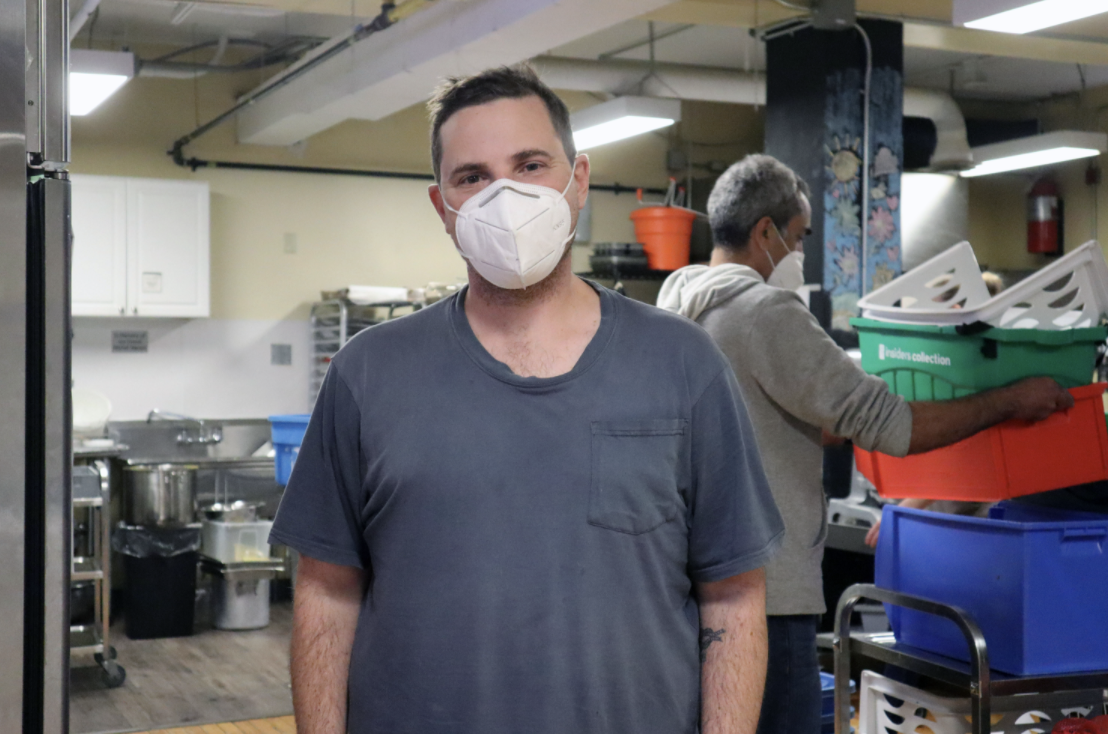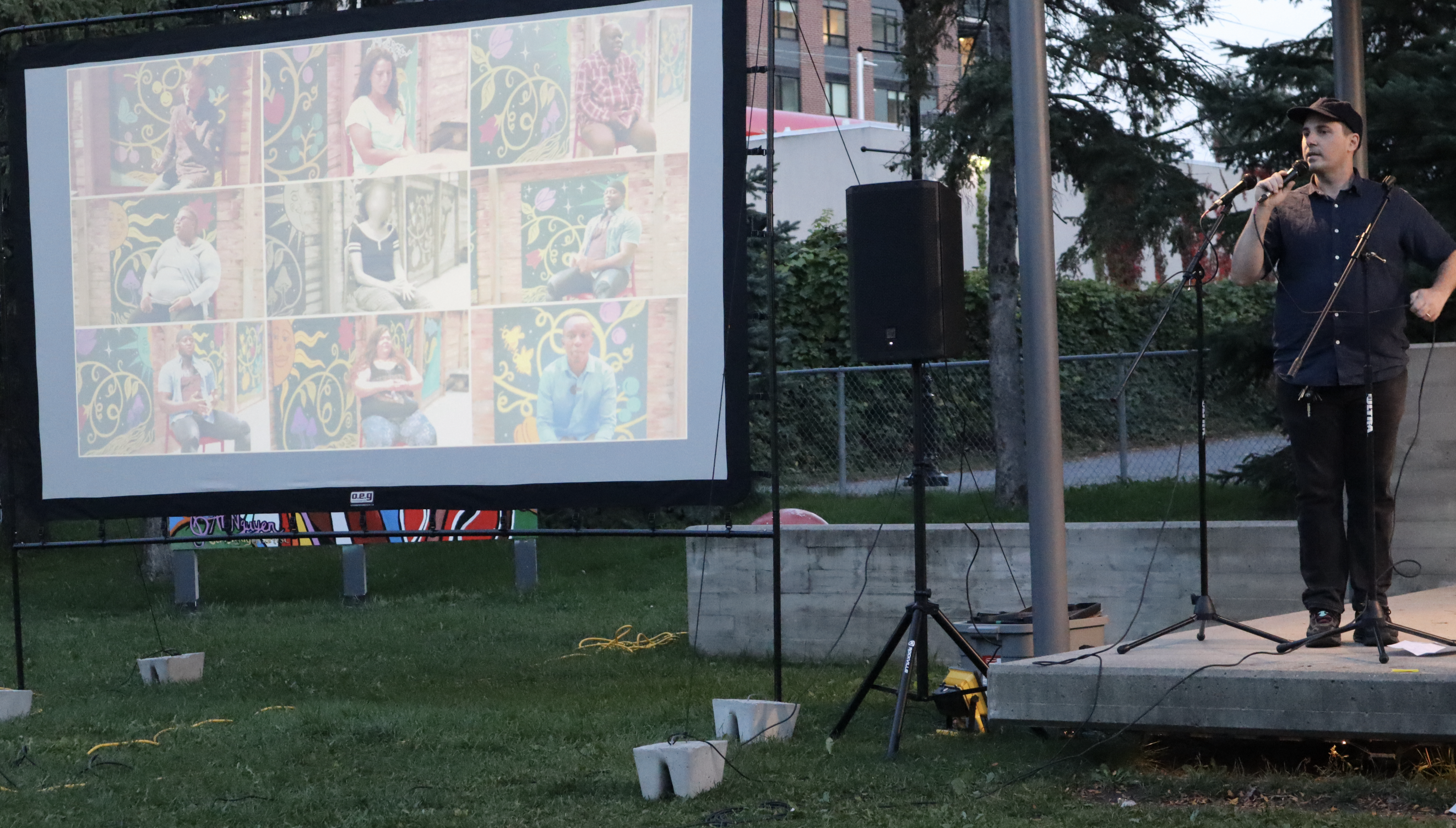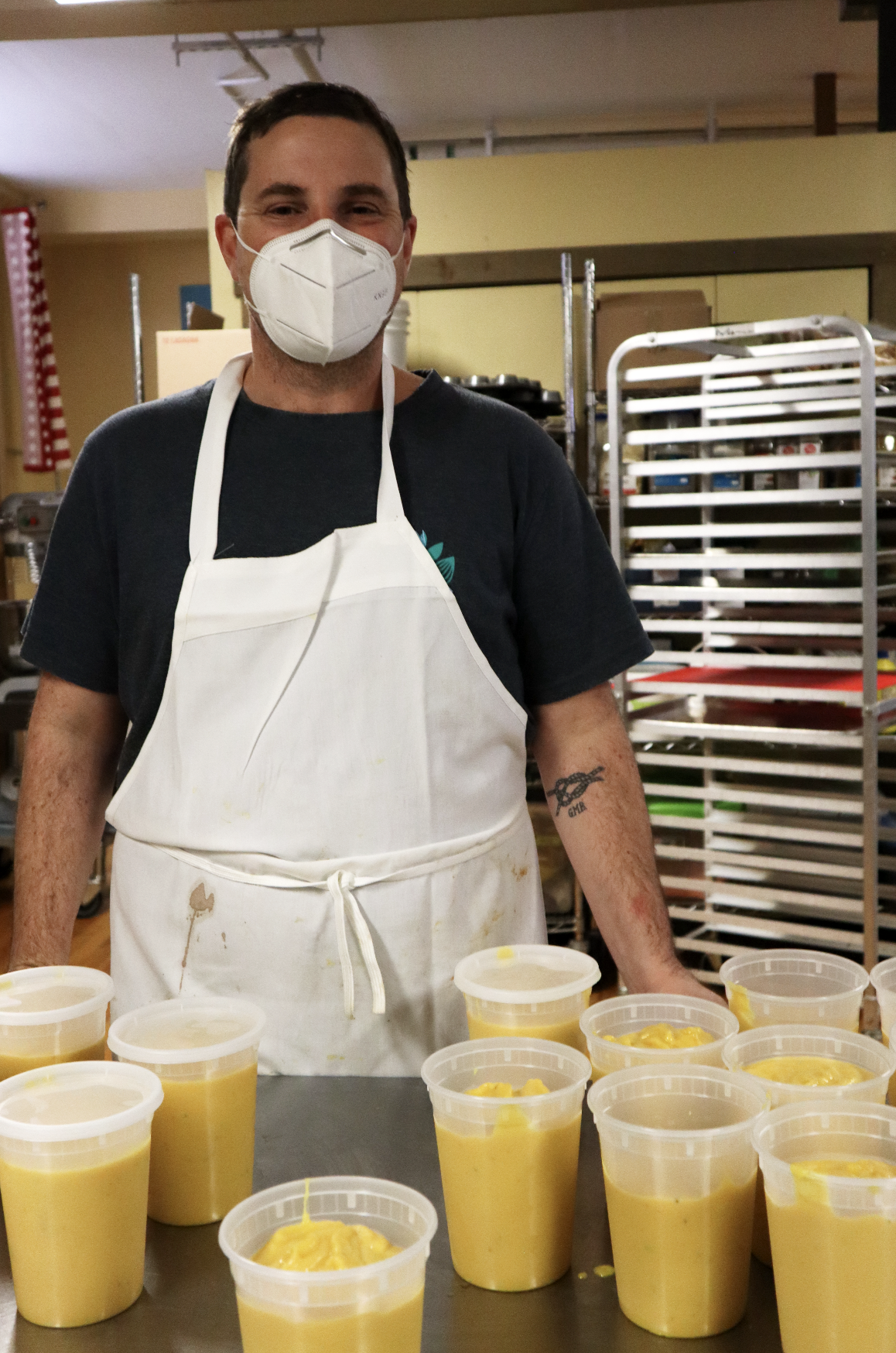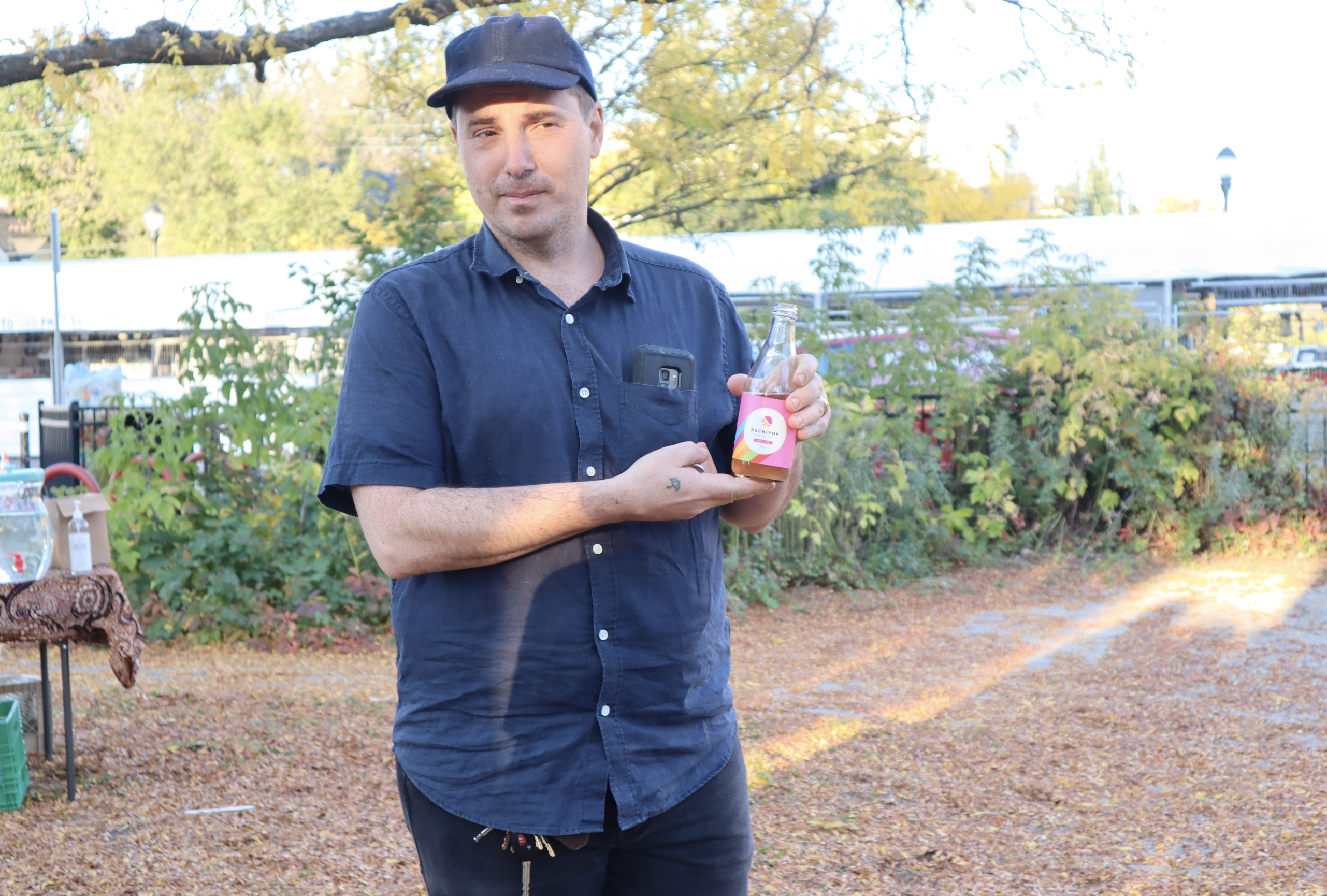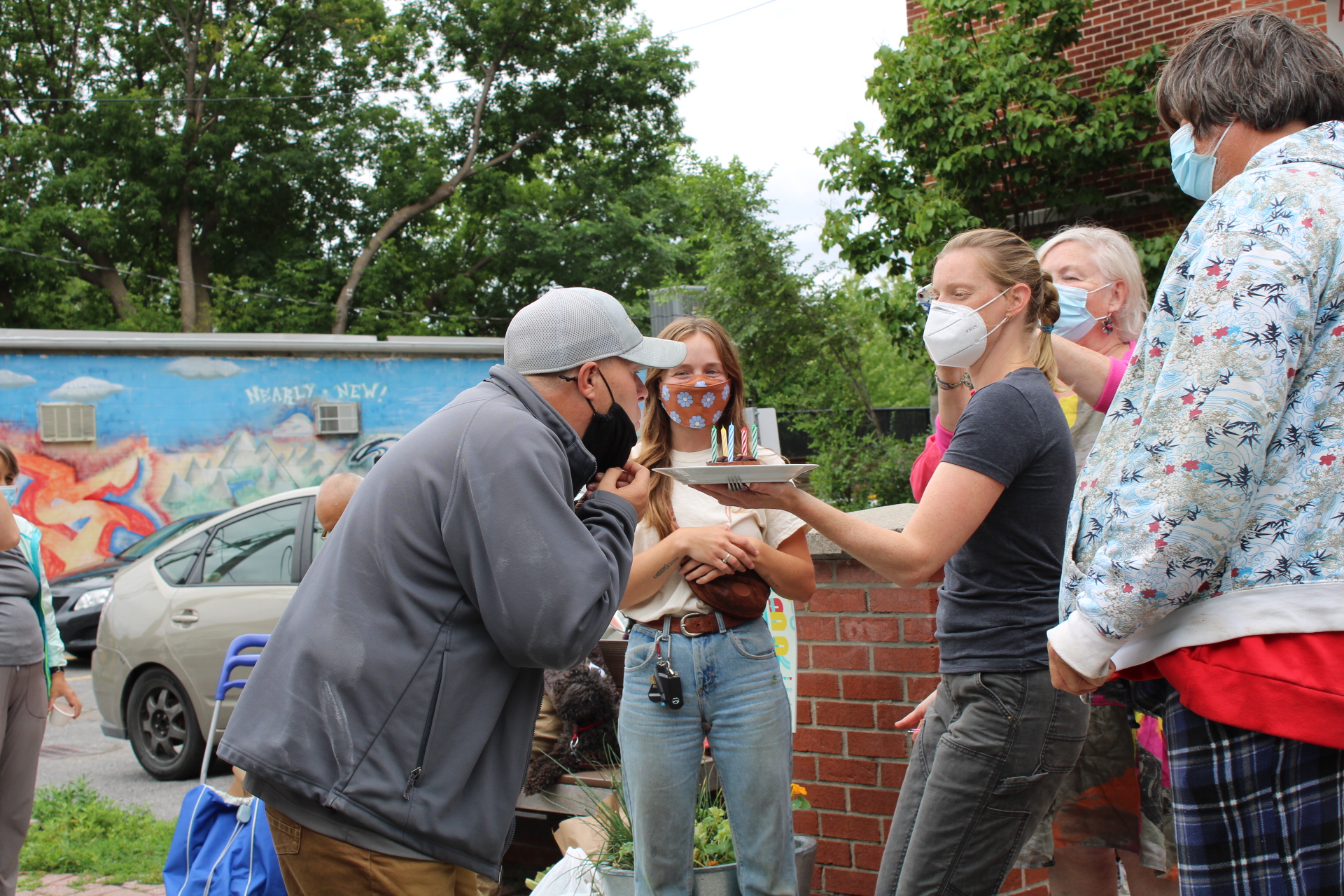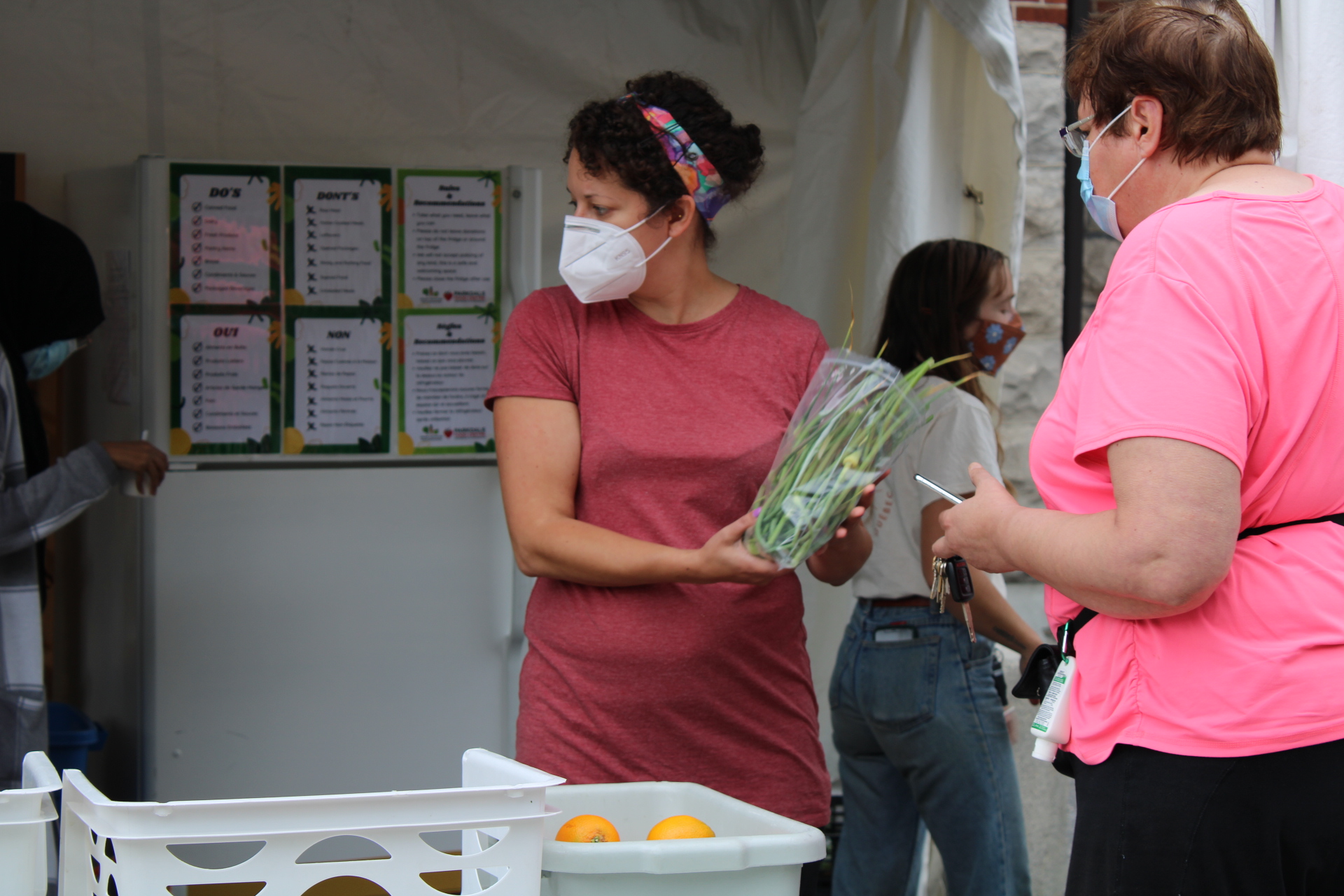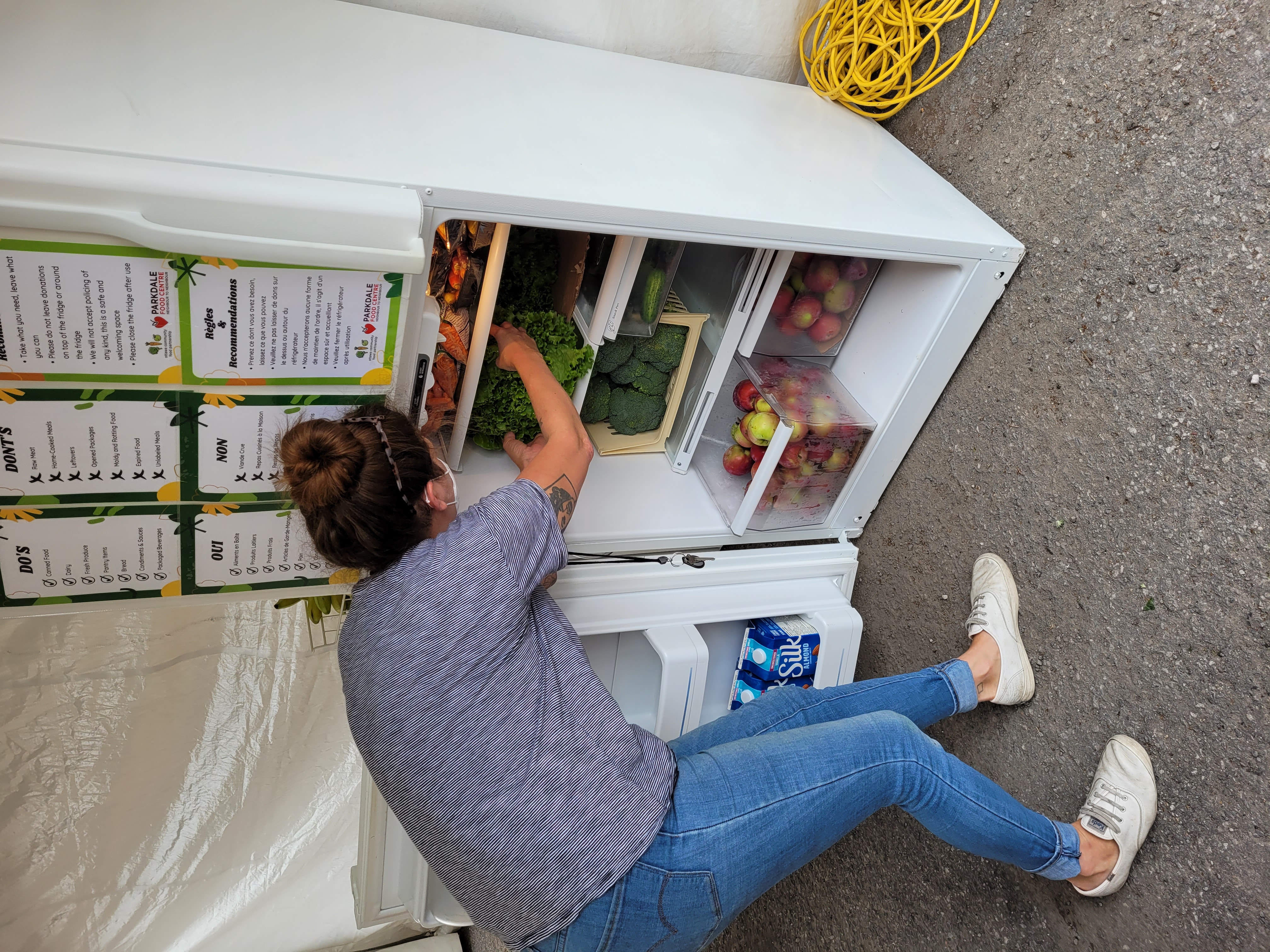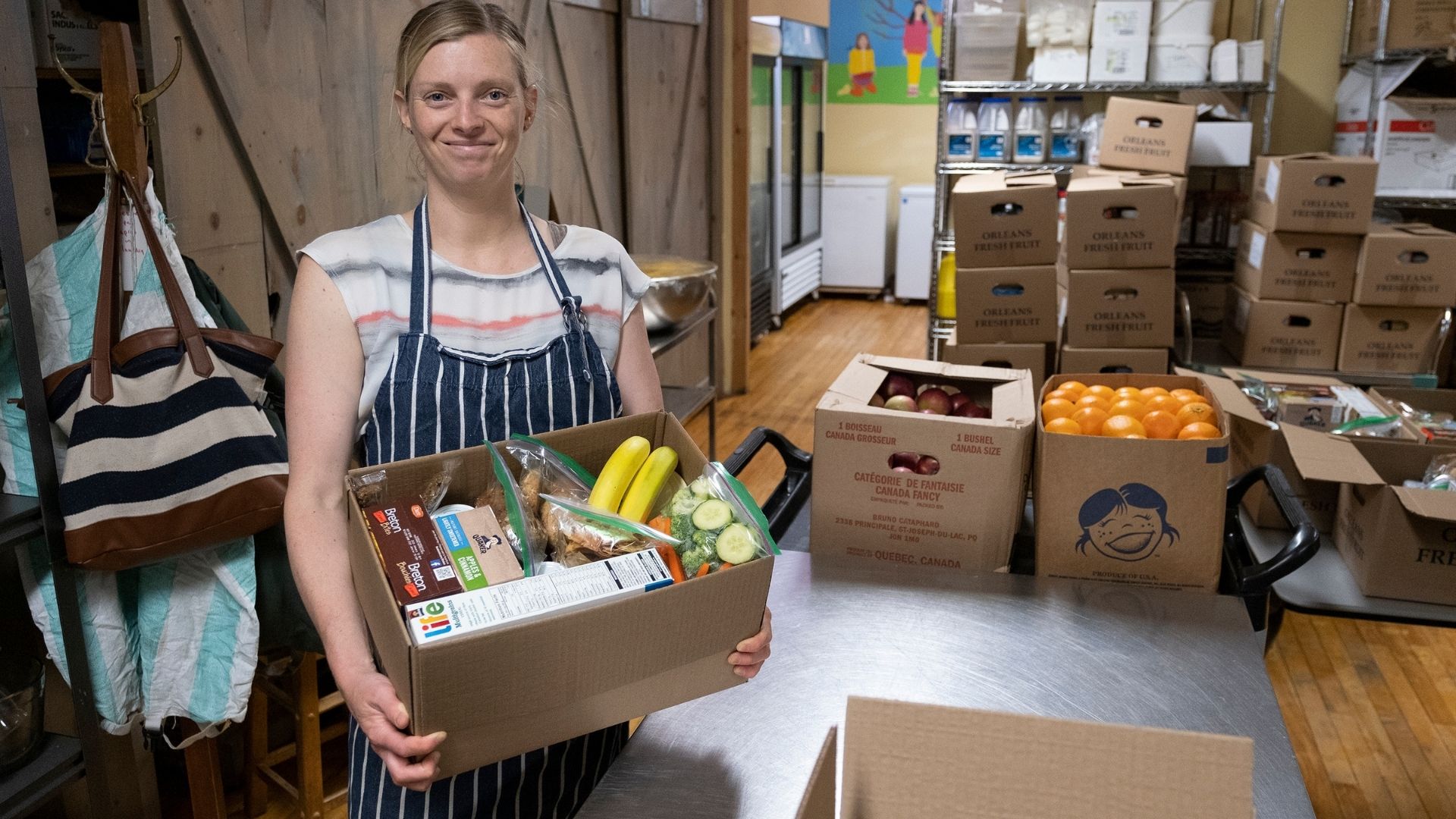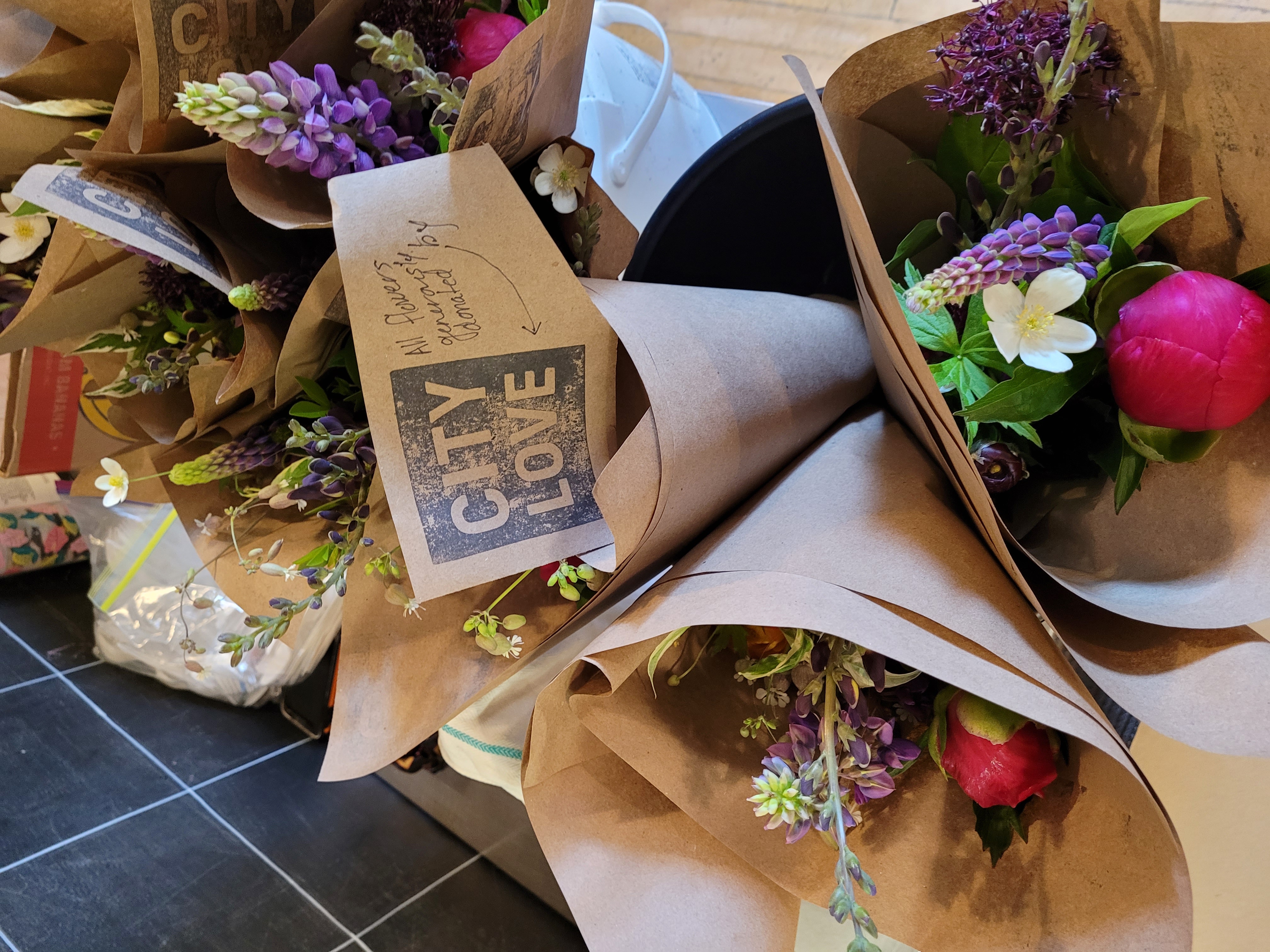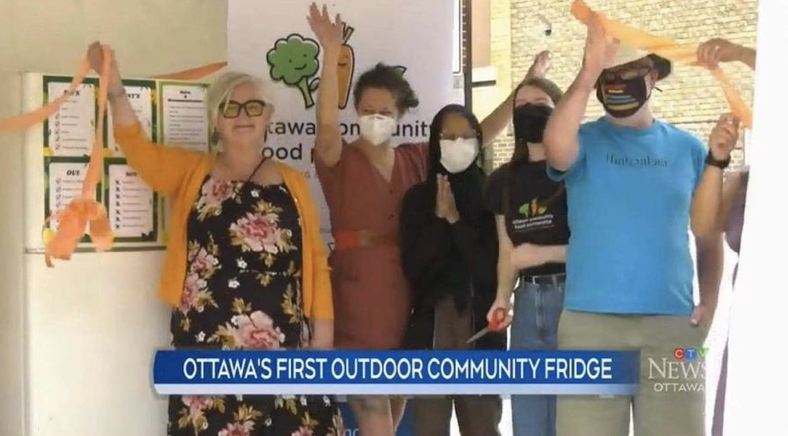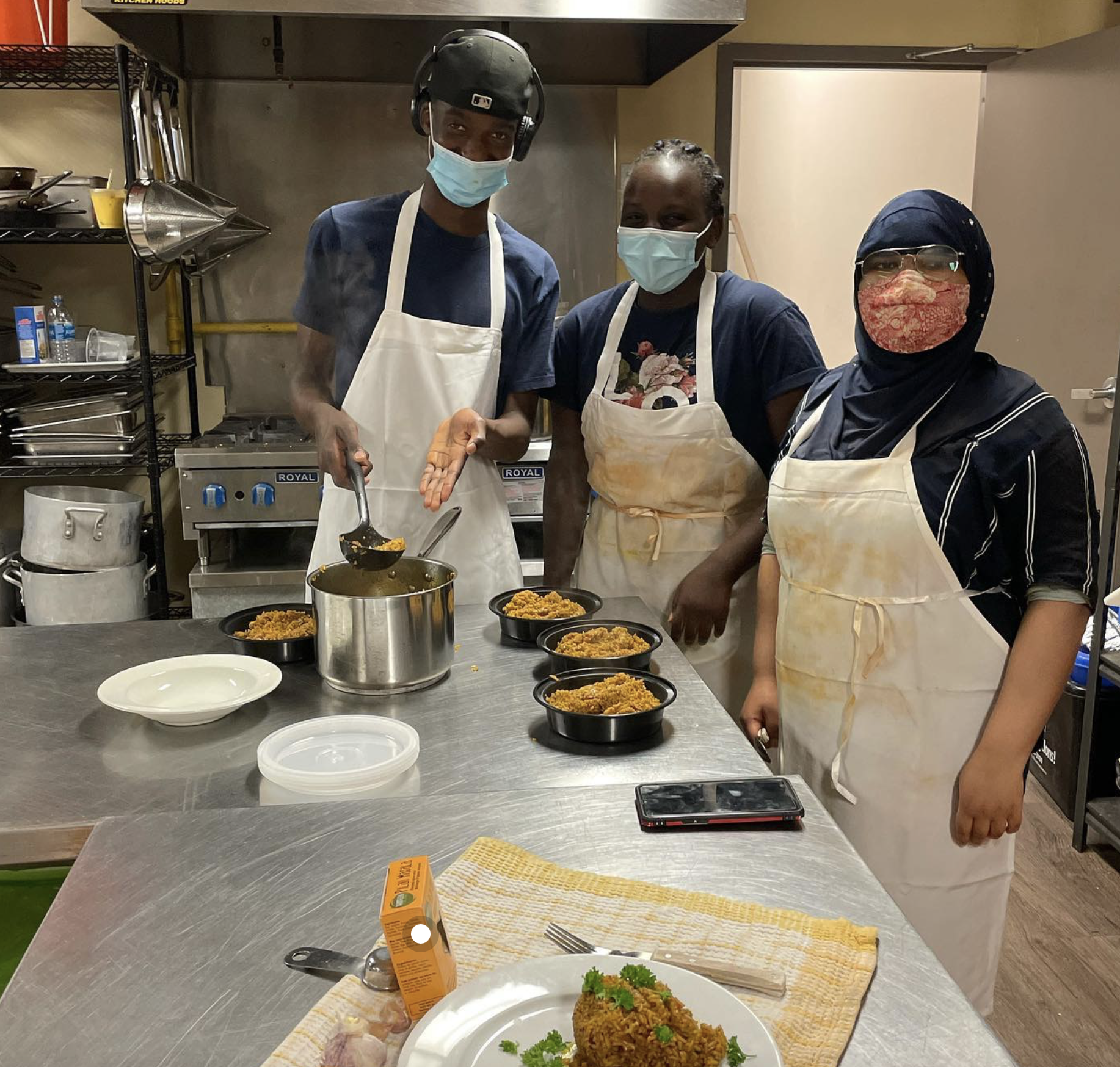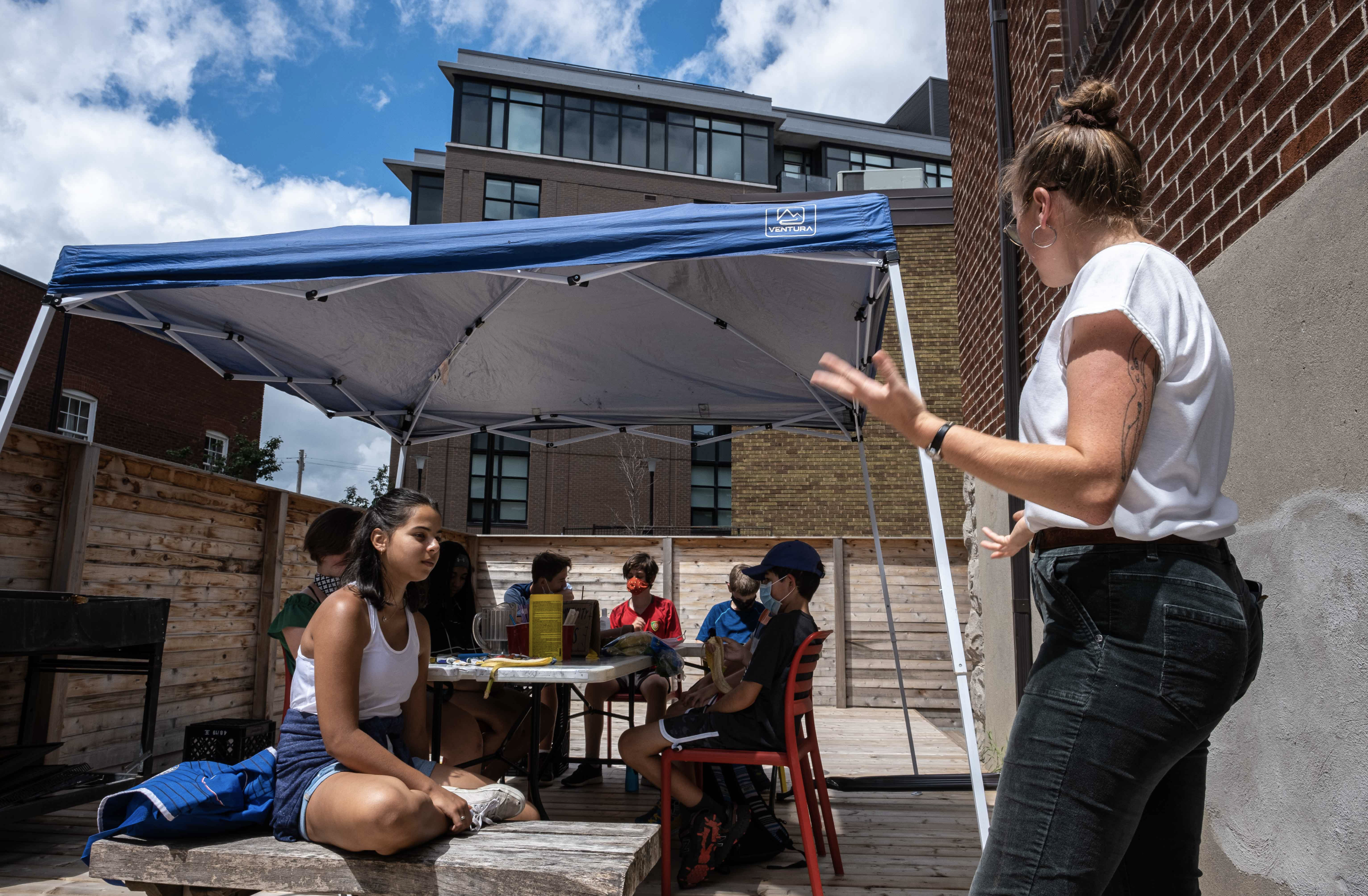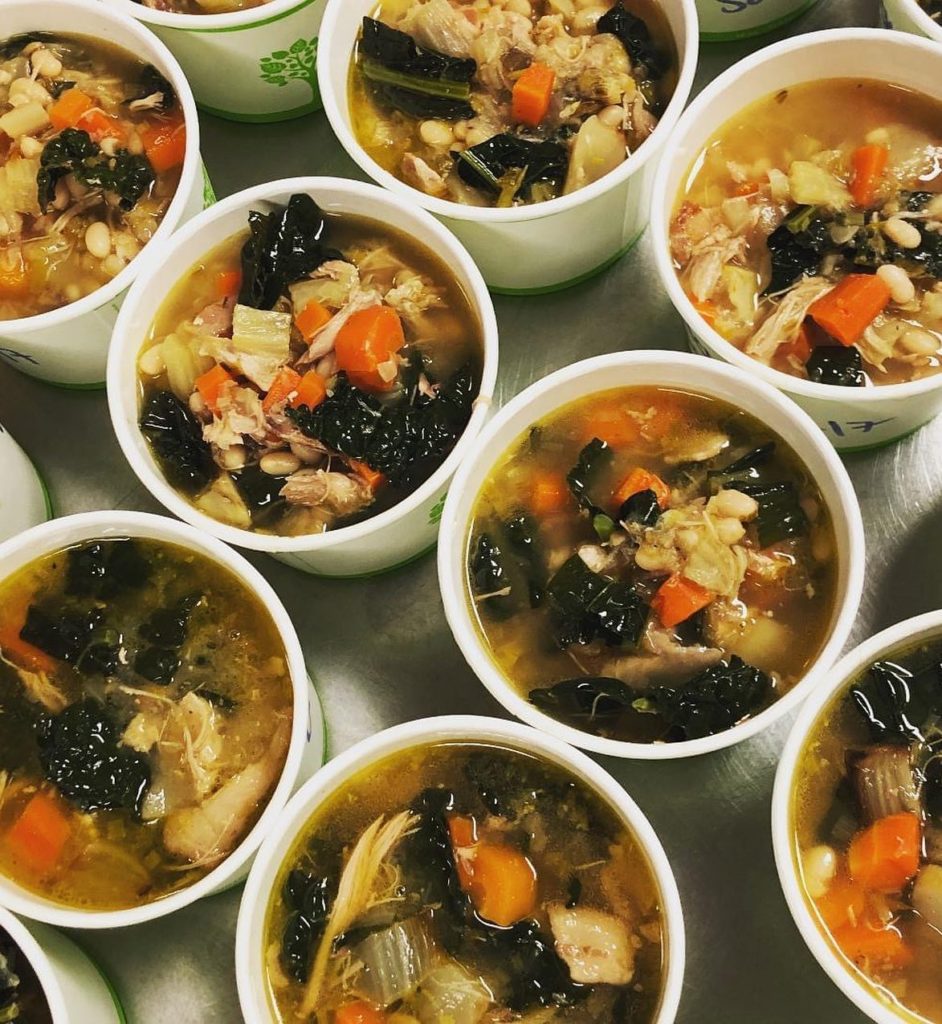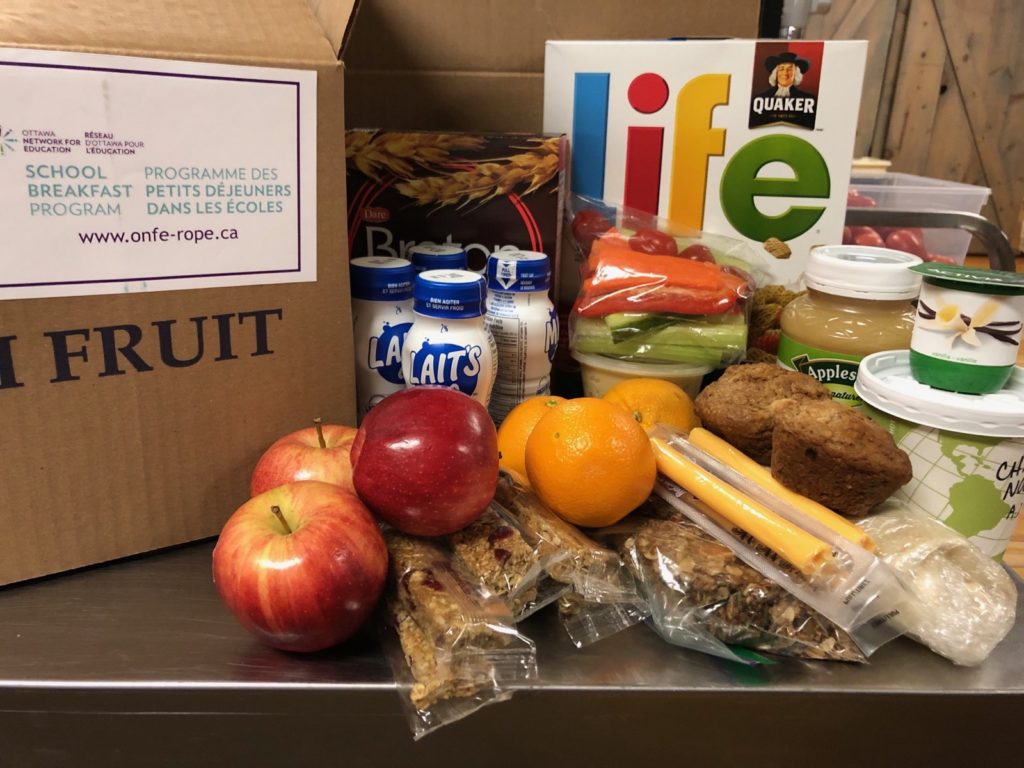After three decades of shuffling discarded and donated food from the “haves” to the “have-nots”, Parkdale Food Centre abandoned it’s old vision and values and began to speak the truth: food banking is driven more strongly by models of corporate greed and inflated egos, than by values that recognize the right to healthy and nutritious food for all as a basic human right. We became social justice activists the day we refused to simply dole out scraps that often were not even meal-worthy.
Instead, we began cooking with our neighbours and eating together as a community, created programming that strengthened community engagement, asked the difficult questions and included many in the answers- most of whom are often left out in food banking, changed our mission, and believed in a better and more equitable system. The invitation to join the newly-formed Global Solidarity Alliance for Food, Health and Social Justice gives our small, but mighty grassroots organization an opportunity to share ideas and join forces with other like-minded researchers, academics and hard workers to build an exit strategy to food banking. Below is the blog, which announces the launch of the alliance.
~ Karen Secord, Executive Director, Parkdale Food Centre
For any inquiries regarding Parkdale Food Centre’s involvement in the alliance, contact: karen@parkdalefoodcentre.org
————————————————————————————
Exploring the emergence of a Global Solidarity Alliance for Food, Health and Social Justice
#RightsNotCharity
Around the world, COVID-19 is shaking the foundation of our globalized economic system to its core. The “richest” countries in the world are staring into the face of an economic depression. In the United States, more than 38 million people across the nation applied for unemployment benefits in the last seven weeks alone, and millions more are expected to lose their jobs in the weeks to come. Officially, the unemployment rate in Canada has jumped to nearly 13% – more than any jump during the three major recessions since the 1980s. Meanwhile, economists in Canada agree that these figures do not capture the severity of the crisis when you factor in the erosion of employment insurance since the 1970s and the current ratio of housing costs to income. In the UK, unemployment has soared past three million people for the first time in 30 years.
On both sides of the Atlantic, the COVID-19 pandemic has led to a massive expansion of food charities. In the US, appeals for donations to food charities are a new media constant, and the government is relying heavily upon food banks to redirect agricultural waste. In Canada the federal government has allocated 50 million dollars to shore up the struggling food bank system. Food pantries and food banks were not a regular feature of life in the United Kingdom until 10 years ago.
Now, the Independent Food Aid Network (IFAN) have reported that independent food banks operating across the UK have seen a major rise in emergency food parcel distribution since the onset of the COVID-19 crisis. Almost a third of organisations experienced rises of 100% or more comparing figures for the months of March 2019 and March 2020. This crisis-within-a-crisis is accelerating the institutionalization of food banking in several countries, as a means of plastering over the gap between need and insufficient income for millions.
Following this pandemic (and already in motion) will be an equally staggering rise in food insecurity across the globe. COVID-19 has brought us to the proverbial crossroads. For several decades our governments have been abdicating their role to ensure the right to food for our nations, increasingly foisting this role onto the private sector. As a result, widespread food insecurity and wealth inequality has grown in our countries. The COVID-19 crisis has made evident that this ‘normal’ is no longer tenable. We are witnessing a private charitable feeding system that has for too long filled the protective role of government pushed to its limits. This is in combination with vertically integrated just-in-time food supply chains that are fraying at the edges. Such consequences are exposing the true extent – and root causes – of the hunger problem in these rich-but-unequal countries.
Make no mistake – this is not a new crisis, but a deepening of fault lines that millions of working families and low-income people have been straddling for the past 40 years. COVID-19 is heightening this decades-old crisis, deepening those cracks, and finally letting enough light in for all to see and experience deep contradictions in our food and social welfare systems and the uneven distribution of wealth that it begets. This voracious extractive economy we’ve been feeding is about to burst at the seams. It’s time for us to reach beyond our nation-states and mobilize, organize, and get loud together as a growing internationalist movement envisioning a different kind of world that centers people over profits and rebuilds the social contract.
Enter the newly named Global Solidarity Alliance for Food, Health and Social Justice. This group of non-governmental organizations, national networks, grassroots activists, and scholars began to emerge two years ago out of relationships built at Trans-Atlantic conferences and meetings, resulting in a growing shared analysis of and reaction to the increased use of private philanthropy and transnational corporate food banking as a response to “rich world” hunger and poverty.
Much of this analysis has a long-standing history; we’ve seen writing about the international dimensions of food charity since the 1980s, but the lasting effects of the 2008 global recession, together with the acceleration and expansion of the Global Foodbanking Network, which has evolved to disperse the charitable food model across the world, and have led to our renewed focus in organising around these issues.
While the structural issues that this alliance addresses are global, the proliferation of institutionalized corporate food banking, private philanthropy, food banks, and other “emergency measures” as permanent responses to poverty and food insecurity originated in the United States, before spreading to Canada and, since the mid 1980s, have steadily advanced across Europe and other parts of the globe. These solutions have never addressed the root causes of food insecurity, and oftentimes exacerbate poverty. They have allowed governments to look the other way, ignoring income policies and human rights, all the while creating greater openings for the corporate capture of public policy and funding, as well as contributing to the downfall of the welfare state.
This particular analysis is currently missing, or not prominently understood, in the global movements for the right to food and food sovereignty. This #RightsNotCharity alliance seeks to complement and amplify the ongoing work of powerful grassroots networks and movements at national, regional, and global levels that are addressing food systems, public health inequities, poverty reduction and social security.
The Global Solidarity Alliance’s focus on so-called “wealthy” countries is a means to build a shared understanding among those in North America and Europe – especially among those who are on the frontlines and work alongside those most impacted by hunger and poverty — of the patterns of destructive policies which have taken hold in North America and are being replicated without criticism in European Countries, and beyond. We seek to build together collective strategies of resistance and alternative models and practices to promote the fulfillment of the right to nutritious food in our respective parts of the world. We also want to invite participation from beyond North America and Europe. In so doing, we will be better prepared to accompany our global allies who have long felt the perverse effects of resource extraction and colonialism by our governments and open collective pathways to authentically struggle for food sovereignty as a right of all people everywhere.
————————————————————————————
Here’s what some of the co-founders of the emerging Global Solidarity Alliance for Food, Health and Social Justice have to say about its potential:
“For the past decade in the UK, emergency food provision has grown, and is becoming an ever more normalized ‘response’ to poverty and insecurity, as we’ve seen in a North American context over a longer time period. Now more than ever, emergency food is playing a key role in responding to the needs of those most vulnerable to the effects of the COVID-19 crisis. Whilst these responses are currently much-needed, the idea of charitable food as an ‘emergency’ must be re-framed; especially important in a (post) COVID-19 context, where the entrenchment and corporatization of food aid are becoming more critical and prominent. Whilst this situation is likely to intensify further as we enter a period of deepening inequality and precarity, there are genuine opportunities for change – something this growing alliance makes possible.” – Dr. Kayleigh Garthwaite, Birmingham Fellow in the Department of Social Policy, Sociology and Criminology, Independent Food Aid Network (IFAN) Trustee and author of Hunger Pains: Life inside foodbank Britain.
“The right to food exists in Canada and has since 1976. It does not mean that the government is required to give out free food. Rather, the government is obliged to create the conditions for people to be able to access good, nutritious, affordable food with dignity, now and in the future. Successive governments, however, have failed to meet these obligations. Covid-19 has the potential of further enshrining food charity as our default response to the almost 4.5 million Canadians that are food insecure. Politicians encourage donations to food banks and themselves wrestle over the opportunity to be photographed sorting what amounts to corporate waste and other people’s leftovers, while ignoring the structural barriers preventing people from accessing their right to food. Food banks have only been a part of the Canadian landscape since 1981, but yet they are so deeply entrenched that not one organization or institution is able to fight back against this neo-liberal response to hunger. The Global Solidarity Alliance is pushing back against this pervasive narrative and gives me great hope.” – Paul M. Taylor, Executive Director, FoodShare Toronto
“The Global Solidarity Alliance is offering a unique space for building a shared analysis and coordinated action among those advocating for the right to nutritious food amidst the growing entrenchment, legitimization and spreading of private charity as an acceptable response to hunger in countries of high wealth. As we weave together and amplify the stories, experiences and visions for justice from our own communities, we will be prepared to align and build with social movements in the struggle for food sovereignty worldwide.” – Alison M. Cohen, Senior Director of Programs, WhyHunger
“The work of the Global Solidarity Alliance is crucial in these unprecedented times where inequalities are exposed, revealing deep structural violence against the impoverished, disabled, children, Black and other racially minoritised and marginalised people. With millions more thrust into poverty and unable to afford food the charitable food model proliferates with the consolidation of Big Food and the increasing corporate capture of food aid. The broad experience and expertise of the Alliance offers thought and practise leadership in developing and modeling solutions for a just discovery.” – Dee Woods FRSA, Food and Farming Action-ist, co-chair Independent Food Aid Network (IFAN), and co-founder of the African and Caribbean Heritage Food Network
“Food charities should not have to carry the burdens of reconciling glaring contradictions between food waste and hunger. Over the past 40 years, states, private businesses and philanthropists have invested billions of dollars into a food banking infrastructure to resolve the inefficiencies of an economic model that produces want amidst plenty. Food banks have grown into critical nodes of our global food supply chains as farmers, food manufacturers and retailers are increasingly relying on poverty and hunger to mitigate their own risks of financial loss. The moral impulse to address hunger should not neutralize our moral outrage over a food system that fixes unsustainable levels of overproduction by growing its feeding lines. The global solidarity alliance works to rewrite the call to charity toward food justice and push back against monopolistic dynamics that currently limit our collective power to enact food sovereignty”. – Joshua Lohnes, Food Policy Research Director, West Virginia University – Center for Resilient Communities
“Long lines at food banks have become an icon of the Covid-19 pandemic, side by side with pictures of milk dumped on the fields and vegetables plowed under. People are rightly outraged by the massive waste amid distressing need, but the answer is not for our societies to become even more dependent upon food banks. The pandemic has revealed both the utter inadequacy of our social safety net and the fragility of our highly concentrated food system. When four companies control 80 % of the meat processing in the US, is it any wonder that there are “disruptions” in our supplies? When legislatures make even the most minimal social support contingent on the fulfillment of work requirements, is it any wonder that people are destitute in the richest nations in the history of the world? In order to secure the human right to food, we need to develop a reliable income security policy on the one hand, and a network of resilient, sustainably produced, local and regional food supplies on the other. I welcome the Global Solidarity Alliance for Food, Health, and Social Justice as a forum in which we can collaborate to address both sides of the food security challenge. We need rights, not charity”. -Jan Poppendieck, Professor Emerita of Sociology, Hunter College, City University of New York and author, Sweet Charity? Emergency Food and the End of Entitlement (Penguin, 1999) and Breadlines Knee-Deep in Wheat: Food Assistance in the Great Depression (University of California Press, 2014).
“Widespread hunger and food insecurity in today’s rich world are markers of the moral vacuum at the centre of forty years of neoliberalism. As governments have neglected their human rights obligations under international law, charitable food banking fed by Big Food and corporate philanthropy in the USA, Canada and the UK – indeed across the OECD – have become the band aid food safety net for broken systems of income security. This outsourcing of rights based social policy has enabled ineffective and stigmatising food handouts to replace income security for those in need. Food banking is a failed response, incapable of ensuring food security for the jobless, the homeless and those on low incomes. The catastrophe of Covid-19 now reveals the true extent of the public health emergency and the crisis of income inequality and material deprivation plaguing our wealthy societies. The Global Solidarity Alliance for Food, Health and Social Justice intends to inform and educate by holding government and public policy to account. Please join. #RightsNotCharity!” – Graham Riches, Professor Emeritus of Social Work, University of British Columba, author of Food Banks and the Welfare Crisis (Ottawa: CCSD 1986) and Food Bank Nations. Poverty, Corporate Charity and the Right to Food (Routledge, 2018)
“The Global Solidarity Alliance is creating the space to unwind common understandings related to food insecurity. The goal is to change the narrative-moving away from charity as the solution to hunger to understanding the root causes of hunger and shifting policy, practice, and investments towards building a more equitable and resilient food system for all.” – Jennifer Zuckerman, Director of Strategic Initiatives, Duke University World Food Policy Center
“Covid-19 is the crisis-within-a-crisis that highlights and exacerbates the contradictions of a profit-prioritising food system that produces both waste and hunger. We have seen millions of animals slaughtered due to loss of market value and highly concentrated slaughtering facilities at a time of overwhelming demand for emergency food, an eerie echo of 1930s America when baby hogs were liquefied to forestall market gluts at a time of visible destitution. This politically-embarrassing contradiction between excess and scarcity, as Janet Poppendieck and others have long documented, has been alleviated by ever-expanding private food charity. Covid-19 is a klaxon call to attend to food production systems that damage ecosystems (and exacerbate pandemic risks) yet have consistently failed to ensure everyone an affordable, nutritious, desirable diet. Many working and volunteering for food charities agree that they cannot be the key response to hunger; the Global Solidarity Alliance will galvanise the vital role of government as well as partnerships between producers, campaigners, researchers and the many people fighting for a food future that’s fair for all.” – Charlie Spring, Research Associate interested in international food charity, University of Calgary and Greater Manchester Food Poverty Alliance.
Stay tuned: A website and social media presence is coming soon. If you’d like to get involved, we’d love to hear from you – including groups beyond the UK, US and Canada.
Contact:
Alison Meares Cohen, WhyHunger, alison@whyhunger.org
Paul Taylor, FoodShare Toronto, paul@foodshare.net
Kayleigh Garthwaite, University of Birmingham, K.Garthwaite@bham.ac.uk
Below are some of the most recent articles published by members of the Global Solidarity Alliance:
Dr. Maddy Power, University of York: COVID-19 exposes inequalities in the UK food system, new analysis reveals
Paul Taylor, FoodShare Toronto: Pandemic has exposed the rifts in our social fabric
Andrew Fisher, author of Big Hunger: The COVID Crisis Is Reinforcing the Hunger Industrial Complex
Graham Riches, author of Food Bank Nations: Poverty, Corporate Charity and the Right to Food: How Food Banks Prop up a Broken System
Dr. Kayleigh Garthwaite: It’s not the hungry who gain most from food banks – it’s big business |
Maggie Dickinson and Joshua Lonnes: Where Do Food Banks Fit in to the Fight for a Green New Deal?
Sabine Goodwin, IFAN: Between the devil and the deep blue sea

